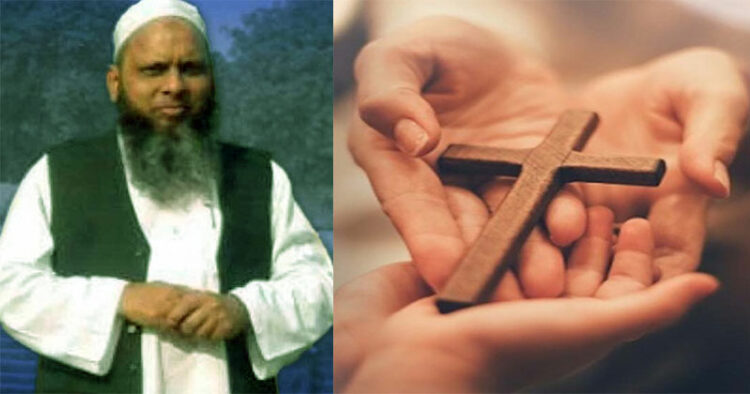The Allahabad High Court (Lucknow Bench) has rejected bail to Mohammad Umar Gautam, in Bhanu Pratap Singh versus State of U.P. And two Others. He was arrested in 2022 based on the allegations of conducting a mass conversion racket in Uttar Pradesh and converting the religion of 90 Hindus to Christianity. The bench was presided over by Justice Jyotsna Sharma.
The compliant was lodged by an informant, alleging that around 90 Hindu individuals were assembled at Evangelical Church of India, Hariharganj, Fatehpur with the ulterior motive of converting them to Christian faith. These individuals were put under “undue influence, coercion and luring them by playing fraud and promise of easy money”, the order read.
After getting this information of the incident, the Government officers visited the said Church and questioned the pastor Vijay Massiah. He happened to reveal that the process for conversion was being carried out for the last 34 days. He further revealed that the same process should be finished within 40 days, and that they were attempting to convert even patients admitted to the Mission Hospital. He disclosed that the employees also had a major role in the conversion process. The Government officers found 35 individuals and 20 unknown persons who were involved in this activity.
One of the witnessed revealed that the applicants attempted to lure him by providing promises of free of cost medical aid, education and employment to his children and financial assistances once he is converted to Christianity. His Aadhaar card was taken from him and his name was changed to a Christian surname. He was given threats by the accused persons that in the event he revealed the event to anyone, his life will be at risk. The other witnesses confirmed the same.
The complaint was filed under certain provisions of Uttar Pradesh Prohibition of Unlawful Conversion of Religion Ordinance, 2020 (sections 3/5(1)), and the Indian Penal Code (Sections 153A, 506, 420, 467, 468). The given provisions of IPC are concerned with promoting enmity between different groups on ground of religion, doing acts prejudicial to maintenance of harmony, criminal intimidation, dishonestly inducing delivery of property, forging a document which purports to be a valuable security or a will, and forgery for purpose of cheating.
The application for anticipatory bail was opposed on behalf of the State. The state contended that the incident resulted in a lot of tension amongst the persons of Hindu community and also led to the formation of a “law and order situation”.
The State firmly put forward that the whole event was a part of a larger scheme. It said “There was a bigger conspiracy hatched by the applicant and his associates with wider ramifications; they were acting in an organized manner for mass conversion. This is not a case where an individual was driven by his conscience to convert to a different faith but the accused persons in tandem with each other systematically went on to influence the persons who usually came in their contact for medical treatment or otherwise.”
The State also argued that the underprivileged and deprived individuals of the community were specifically targeted and their circumstances taken an advantage of for facilitating their participation in the conversion. “Their poor socio-economic condition was exploited to lure them into participating in mass conversion. The offer for easy money, jobs etc. were used as a bait to tempt them in this incident. The incident might seem not so grave on surface but had a hidden agenda behind it”, said the State.
After deliberating upon all facets of the matter, Justice Jyotsna Sharma did not find any grounds for provision of anticipatory bail to the accused, therefore, the bail application was rejected.



















Comments